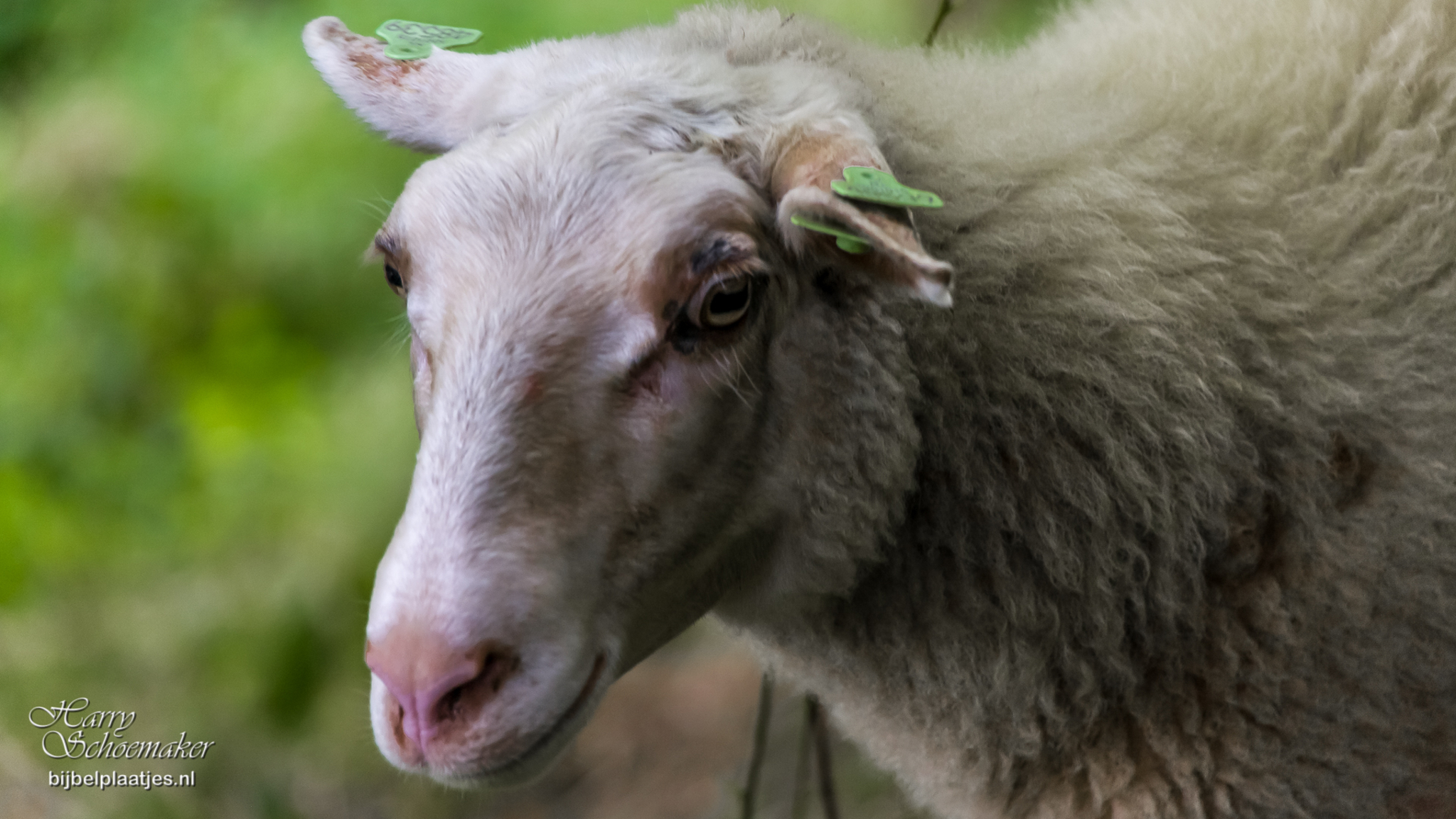
Matthew 10:16
Behold, I send you forth
as sheep in the midst of wolves:
be ye therefore wise as serpents,
and harmless as doves.
Study
Other translations
New International Version
“I am sending you out like sheep among wolves. Therefore be as shrewd as snakes and as innocent as doves.
New Living Translation
“Look, I am sending you out as sheep among wolves. So be as shrewd as snakes and harmless as doves.
English Standard Version
“Behold, I am sending you out as sheep in the midst of wolves, so be wise as serpents and innocent as doves.
Berean Study Bible
Behold, I am sending you out like sheep among wolves; therefore be as shrewd as snakes and as innocent as doves.
Berean Literal Bible
Behold, I send you forth as sheep in the midst of wolves; therefore be shrewd as serpents and innocent as doves.
New King James Version
“Behold, I send you out as sheep in the midst of wolves. Therefore be wise as serpents and harmless as doves.
New American Standard Bible
“Behold, I am sending you out as sheep in the midst of wolves; so be as wary as serpents, and as innocent as doves.
Amplified Bible
“Listen carefully: I am sending you out like sheep among wolves; so be wise as serpents, and innocent as doves [have no self-serving agenda].
□ ■ □
Behold, I send you forth as sheep in the midst of wolves
I now send you forth weak and defenceless among a wicked, cruel, and persecuting people.
▪︎ Considering the nature of the tidings which the apostles were now sent out to publish, namely, that the kingdom of heaven was at hand.
▪︎ Considering, also, the number and variety of the miraculous cures which they were to be enabled to perform in confirmation of their doctrine, together with the greatness of the benefits they were to confer upon the families who should entertain them kindly,
It is reasonable to think that they were flattering themselves with the hopes of great honour and acceptance wherever they came.
In the meantime, the event was by no means to answer their expectation.
They were everywhere to be despised, persecuted, delivered up into the hands of public justice, and punished as evil doers.
Our Lord, therefore, who thought fit to forewarn them of these things, made them large promises of the divine aid, and gave them directions with respect to their conduct in every circumstance.
I send you forth.
The nominative pronoun is emphatic.
“It is I who send,” and that not so much as an assurance of protection, but, as the words that follow show, as reminding them of their responsibility as His delegates.
As sheep in the midst of wolves
Nothing can be more striking than the union of this clear foresight of conflict and suffering with the full assurance of victory and sovereignty.
The position of the disciples would be as sheep surrounded by a flock of hungry and raging wolves, the wolf being here, as elsewhere in the New Testament, the symbol of the persecutor.
Be ye therefore wise as serpents
Be so prudent as not to irritate the wicked, and those who shall oppose you, either by your behaviour or your doctrine, unnecessarily, and avoid all unnecessary dangers:
Wise as serpents
The idea of the serpent as symbolising wisdom, seems to have entered into the early parables of most Eastern nations.
- We find it in Egyptian temples,
- in the twined serpents of the rod of Æsculapius and of Hermes,
- in the serpent-worship of the Turanian races,
- in the history in Genesis 3 of the serpent that was “more subtle than any beast of the field.”
For the most part it appears in Scripture as representing an evil wisdom to be fought with and overcome.
Here we learn that even the serpent’s sinuous craft presents something which we may well learn to reproduce.
When St. Paul “caught men with guile” (2Corinthians 12:16), becoming “all things to all men” (1Corinthians 9:22), he was acting in the spirit of his Master’s counsels.
Wise
So it is translated in the Amplified Version and the Revised Version. Denoting prudence with regard to their own safety. Wyc., wary.
Harmless as doves
Better, simple, sincere, i.e., “guileless.”
The Greek indicates more than simple harmlessness. It indicates a character in which there is no alloy of baser motives.
Let not your prudence degenerate into craft, lest it lead you to betray the truth, or to encourage or countenance men in their evil practices; maintain at all times a holy simplicity of soul; and to your prudence join a harmless and inoffensive behaviour, rendering yourselves remarkable for integrity amid the greatest temptations, and for meekness amid the greatest provocations.
Once again truth appears in the form of paradox.
The disciples of Christ are to be at once supremely guileful and absolutely guileless.
Our Lord’s reference to this symbolism gains a fresh significance when we remember that He had seen the heavens opened, and the Spirit of God descending “like a dove” upon Himself (Matthew 3:16).
In and by that Spirit the two qualities that seem so contradictory are reconciled.
Harmless
Literally: unmixed, unadulterated.
This is used of wine without water, and of metal without alloy.
Hence guileless.
So Luther translated it as “without falsity”.
Compare Romans 16:19; Philippians 2:15.
They were to imitate the serpent’s wariness, but not his wiliness.
“The presence of the wolves demands that ye be wary; the fact that ye are my apostles (compare “I send you”) demands that ye be guileless.”
Greek
Look ☆ Ἰδοὺ (Idou) ☆ Verb – Aorist Imperative Active – 2nd Person Singular ☆ See! Lo! Behold! Look! Second person singular imperative middle voice of eido; used as imperative lo!
I ☆ ἐγὼ (egō) ☆ Personal / Possessive Pronoun – Nominative 1st Person Singular ☆ I, the first-person pronoun. A primary pronoun of the first person I.
Am sending you out ☆ ἀποστέλλω (apostellō) ☆ Verb – Present Indicative Active – 1st Person Singular ☆ From apo and stello; set apart, i.e. to send out literally or figuratively.
Like ☆ ὡς (hōs) ☆ Adverb ☆ Probably adverb of comparative from hos; which how, i.e. In that manner.
Sheep ☆ πρόβατα (probata) ☆ Noun – Accusative Neuter Plural ☆ A sheep. Probably neuter of a presumed derivative of probaino; something that walks forward, i.e., a sheep.
Among ☆ ἐν (en) ☆ Preposition ☆ In, on, among. A primary preposition denoting position, and instrumentality, i.e. A relation of rest; ‘in, ‘ at, on, by, etc.
Wolves ☆ λύκων (lykōn) ☆ Noun – Genitive Masculine Plural ☆ A wolf, of perhaps a jackal; often applied to persons of wolfish proclivities. Perhaps akin to the base of leukos; a wolf.
Therefore ☆ οὖν (oun) ☆ Conjunction ☆ Therefore, then. Apparently a primary word; certainly, or accordingly.
Be ☆ γίνεσθε (ginesthe) ☆ Verb – Present Imperative Middle or Passive – 2nd Person Plural ☆ A prolongation and middle voice form of a primary verb; to cause to be, i.e. to become, used with great latitude.
As shrewd ☆ φρόνιμοι (phronimoi) ☆ Adjective – Nominative Masculine Plural ☆ Intelligent, prudent, sensible, wise. From phren; thoughtful, i.e. Sagacious or discreet; in a bad sense conceited.
As ☆ ὡς (hōs) ☆ Adverb ☆ Probably adverb of comparative from hos; which how, i.e. In that manner.
Snakes ☆ ὄφεις (opheis) ☆ Noun – Nominative Masculine Plural ☆ Probably from optanomai; a snake, figuratively, an artful malicious person, especially Satan.
And ☆ καὶ (kai) ☆ Conjunction ☆ And, even, also, namely.
As innocent ☆ ἀκέραιοι (akeraioi) ☆ Adjective – Nominative Masculine Plural ☆ (lit: unmixed) simple, unsophisticated, sincere, blameless. Unmixed, i.e. innocent.
As ☆ ὡς (hōs) ☆ Adverb ☆ Probably adverb of comparative from hos; which how, i.e. In that manner.
Doves ☆ περιστεραί (peristerai) ☆ Noun – Nominative Feminine Plural ☆ A dove, pigeon. Of uncertain derivation; a pigeon
□ ■ □
Read more of these messages at: https://devotionals.harryschoemaker.nl
Download your Bible pictures from: http://bijbelplaatjes.nl
Follow me on Twitter: @schoemakerharry
Email: devotionals@harryschoemaker.nl





